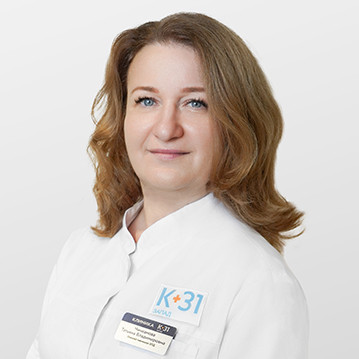What does an MRI of the brain and blood vessels show
The study of the GM or its vessels using MRI is functionally different. The purpose of the first is to study the structure of brain tissues, and the second - the features of veins and arteries. Depending on the diagnosed disease, the doctor selects a certain type of magnetic resonance imaging.
What does an MRI of the head and blood vessels show by angiography:
- Diseases of the arteries and veins of the GM - ischemia, atherosclerosis, aneurysm, vasculitis.
- Narrowing or occlusion of the great vessels.
- Pathologies - arteriovenous malformation or deformity, vertebrobasilar insufficiency, diabetic angiopathy.
- The quality of blood supply to the brain and blood circulation.
Based on the preliminary diagnosis, it is possible to conduct a study of the brain and its veins, brain and arteries, or a comprehensive examination with the study of all vessels.
Separately, MRI of the GM without taking into account the vessels is performed in the case of differential diagnosis:
- Nervous tissue damage.
- The presence of neoplasms (hematomas, benign or malignant tumors).
- Lesions of the cerebral cortex in epilepsy and other neurological diseases.
- Violations in the structure of anatomical structures (nerves, eye sockets, pituitary gland, ENT organs, nasal sinuses).
Usually, when prescribing an MRI scan of the head, priority areas for research are determined: the facial part, the pituitary gland and cerebellum, the brain as a whole, etc.
MRI visualizes the areas responsible for the activity of the cerebral cortex, the sense organs (vision, hearing, speech apparatus) and makes it possible to:
- Detect disorders of both the nervous and circulatory systems.
- Determine the presence and size of tumors.
- Find out the cancer and its stage.
MRI of the vessels of the neck and head is performed to determine the cause of chronic headaches, circulatory disorders after an injury to the cervical spine, with frequent dizziness and fainting, and sleep disturbances.
Neck angiography can diagnose:
- Developmental anomalies in the veins and arteries of the cervical region - king-king syndrome, aneurysm.
- Takayasu's disease.
- Atherosclerosis, thrombosis of the vessels of the neck.
- Oncology in the cervical region.
- Compression of blood vessels and the cause of the development of the disorder is the presence of scars, tumors.
- Stenosis or occlusion of blood vessels.
Contrast-enhanced MR diagnostics is necessary during a second examination for a clearer and more detailed visualization of the image of the problem area, to determine the effectiveness of the therapy. This requires a doctor's referral, as the procedure has certain contraindications.
Indications for MRI of the brain in the vascular mode
The general practitioner, radiologist, vascular surgeon, neurologist or other narrow specialists suggest that the patient undergo an MRI of the head and cerebral vessels in the presence of the following complaints and pathologies:
- Head injury.
- Frequent dizziness.
- Chronic headaches of unexplained etiology.
- Hearing or vision impairment, speech impairment, loss of coordination.
- Stroke.
- Memory problems.
- Sleep disorders.
- Increased ICP (intracranial pressure).
- Eye, ear, nose injury.
- Oncology.
MRI diagnostics is prescribed before brain surgery and after therapy to evaluate its result. MRI of the head with neck vessels helps not only to diagnose disorders, but also to find the cause of their development.
Contraindications for diagnosis
The advantage of MRI is the absence of radiation exposure to the body, so the appointment is carried out when other methods of examination are impossible or ineffective. MRI of the brain with a vascular program can be done in children of any age, provided that they lie quietly without moving in the tomograph throughout the study. But the technique also has contraindications.
MRI of the arteries, neck and veins of the brain cannot be performed with:
- The presence of metal implants or clips in any part of the body.
- Middle ear implants.
- The presence of a pacemaker.
During pregnancy, during lactation, with allergies to certain drugs, MRI with contrast is contraindicated. If possible, a study without contrast enhancement is prescribed.
Preparation and conduct of MRI of vessels
The diagnostic procedure does not provide for special training. Among the restrictions, there are - abstinence from alcohol, smoking and food 2 hours before the tomography. Immediately before starting the manipulation, a person needs to remove all metal accessories, earrings, false teeth (if any).
The duration of the examination on the tomograph is from 25 minutes.
The patient lies on the couch of the apparatus and puts the coil-helmet on his head. With MRI with contrast, a standard measurement of indicators is first performed, then a contrast agent is injected into the vein and the procedure is repeated.
The study is painless. During it, the patient can hear a hum, tinnitus, feel tingling and warmth. This is a normal reaction to the magnetic resonance effect of the device on the body.
The cost of MRI of the brain and blood vessels in Moscow
Doctors of the clinic "K+31" perform all types of MRI diagnostics to determine vascular diseases of the brain and neck. By calling the reception or filling out an application online, you can find out the cost of individual services and make an appointment.
The price of MRI of cerebral vessels in the medical center depends on the following factors:
- The priority of the study is only veins, arteries or all vessels.
- Area - head, neck, or both.
- With or without contrast.
The price for an MRI of the brain and blood vessels is from 10,300 rubles. The cost of a contrast agent or interpretation of the indicators are not included in the standard package of services.
In our center, examinations are carried out by experienced diagnosticians using modern high-precision equipment. To make an appointment at a convenient time, call the number: +7 (499) 999-31-31.

























